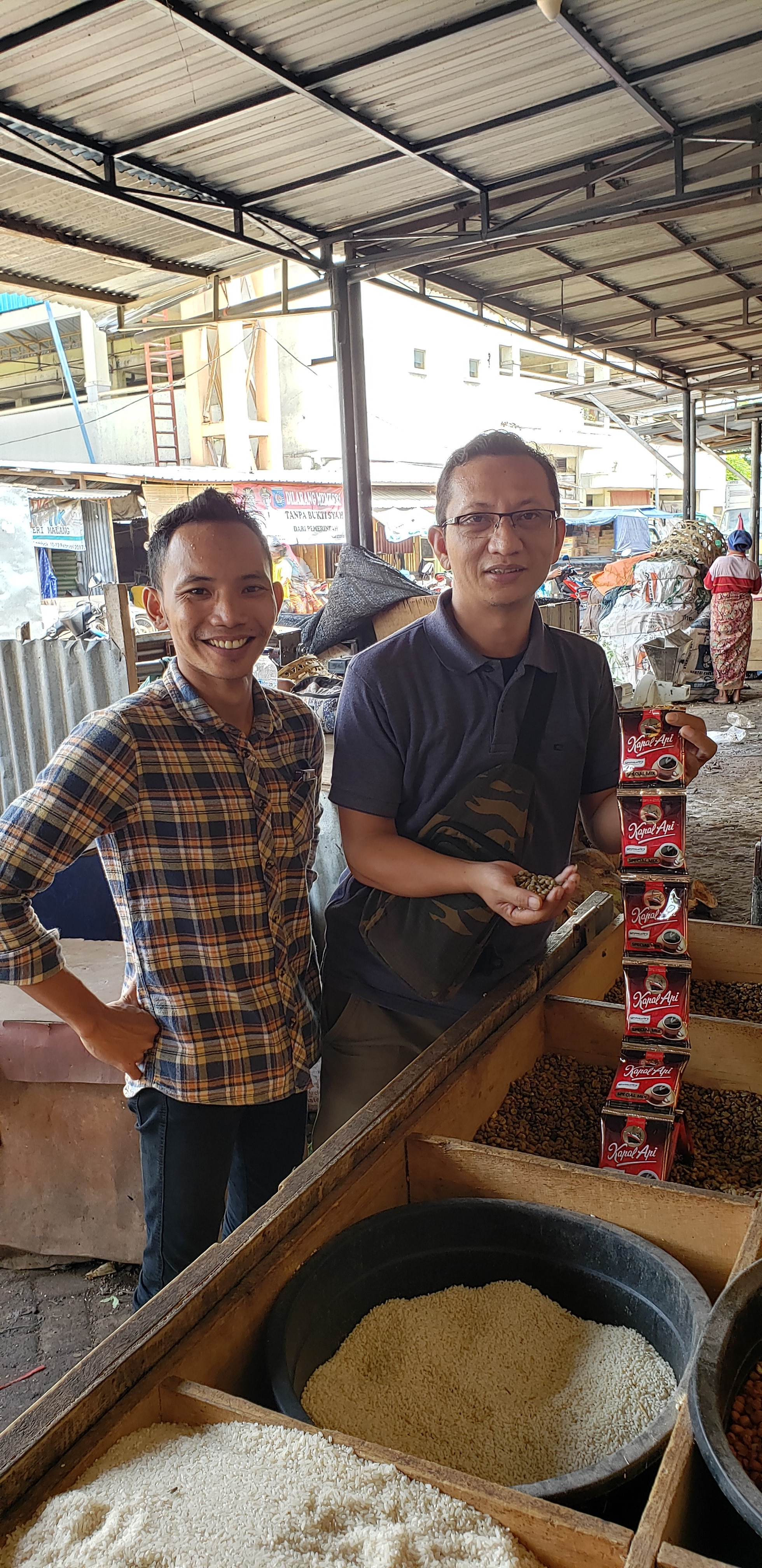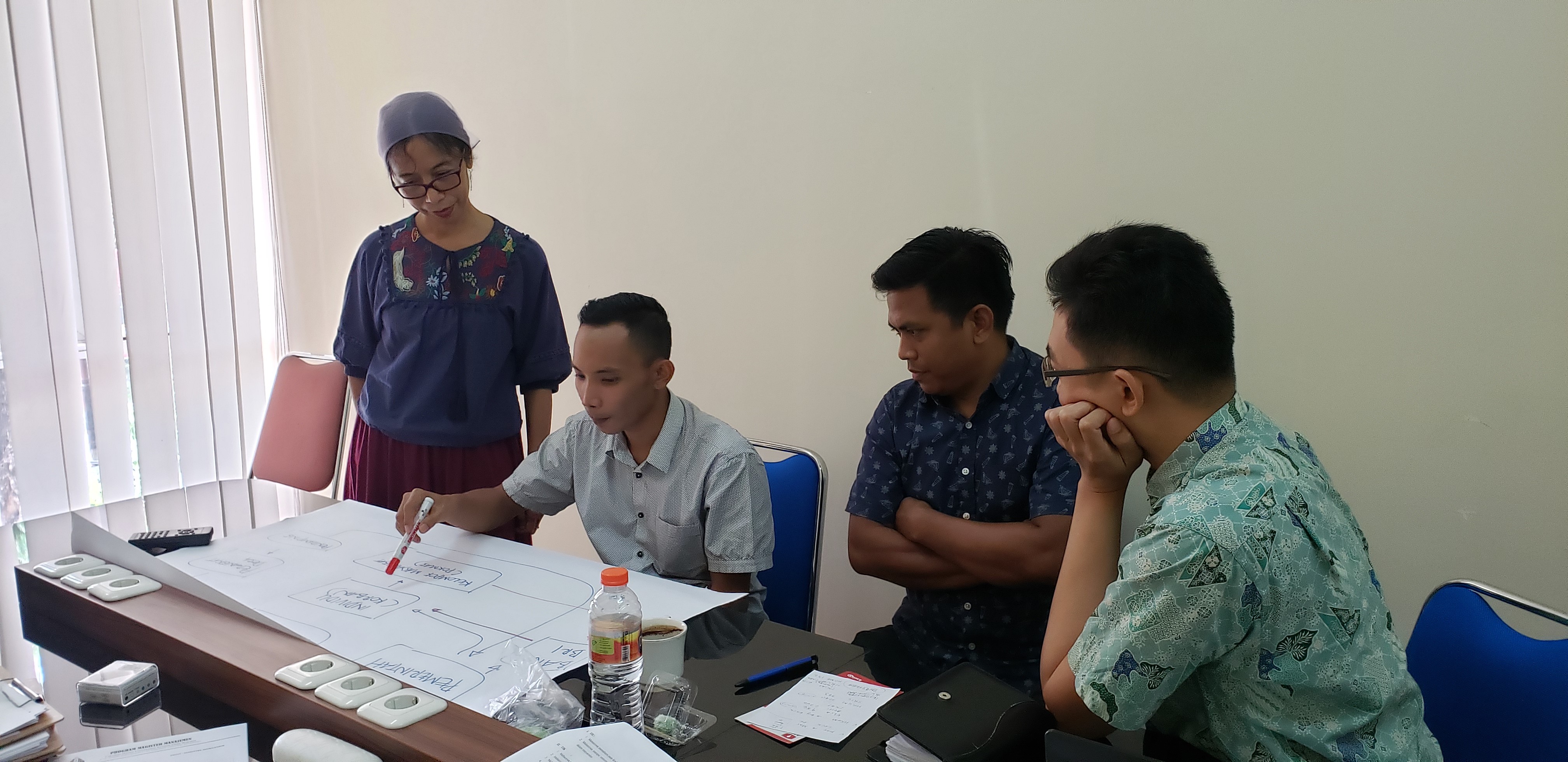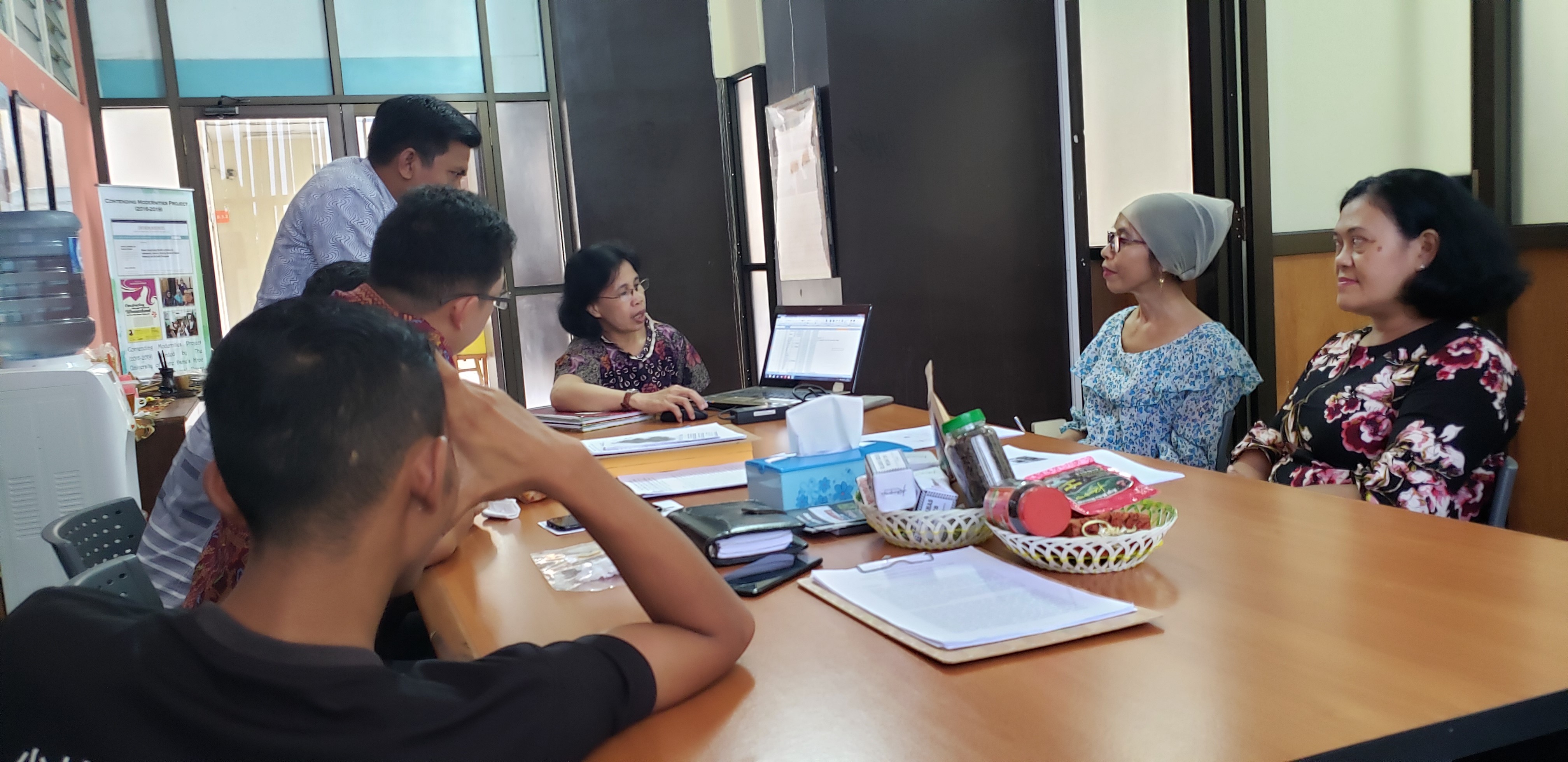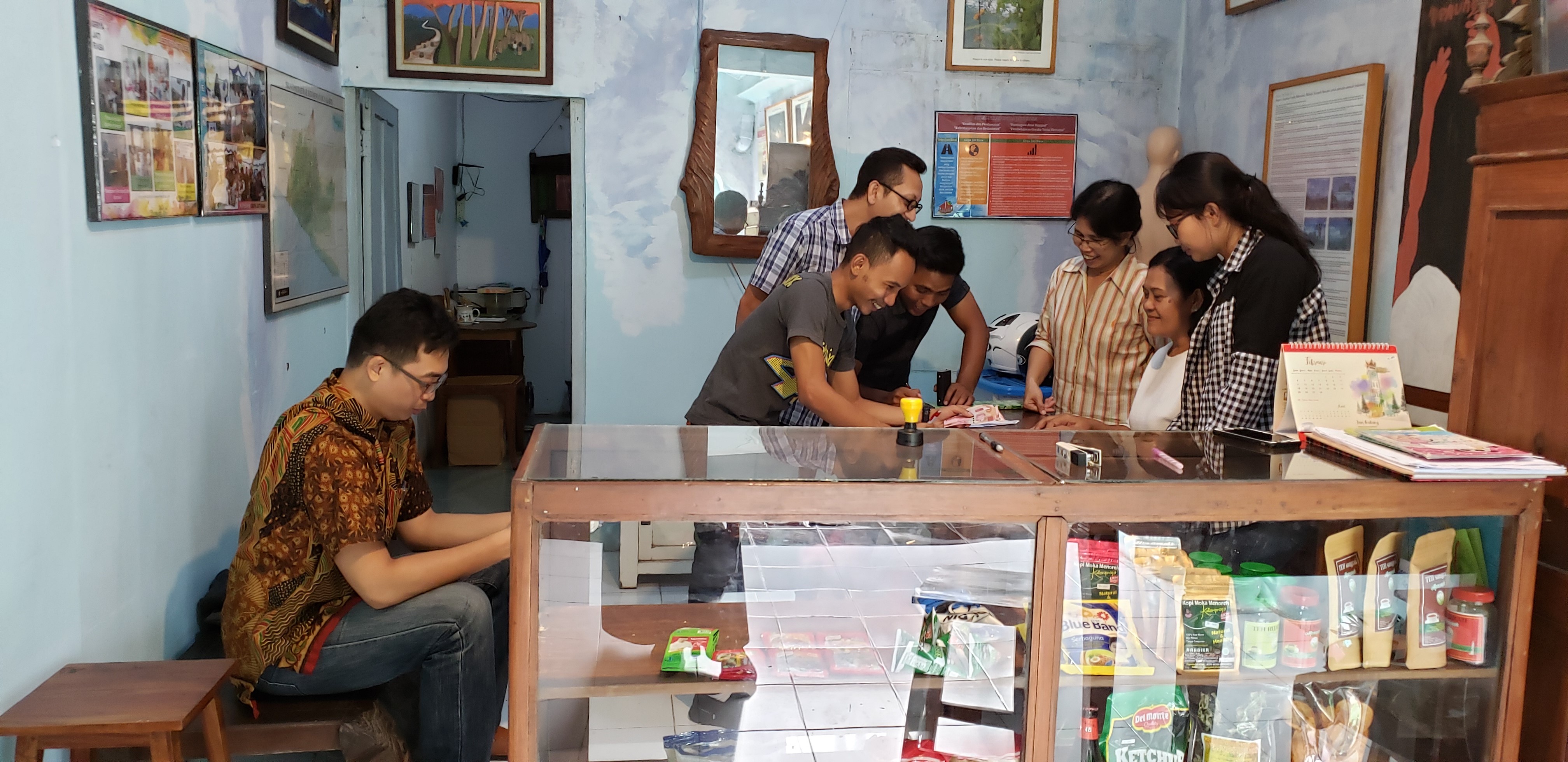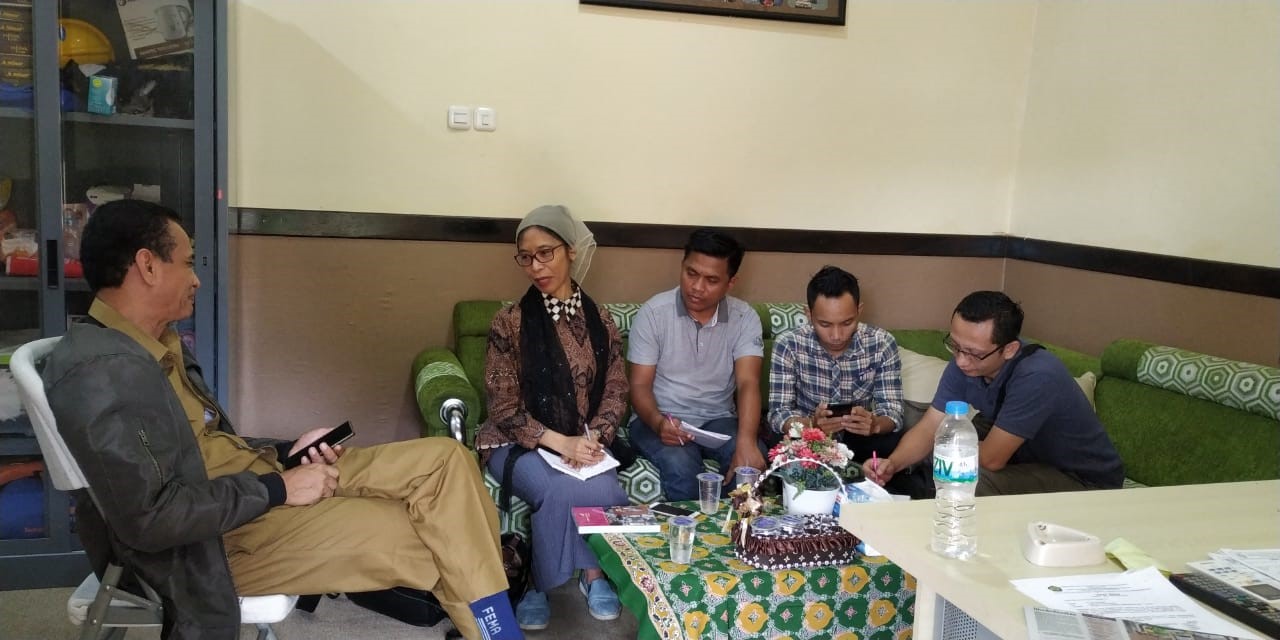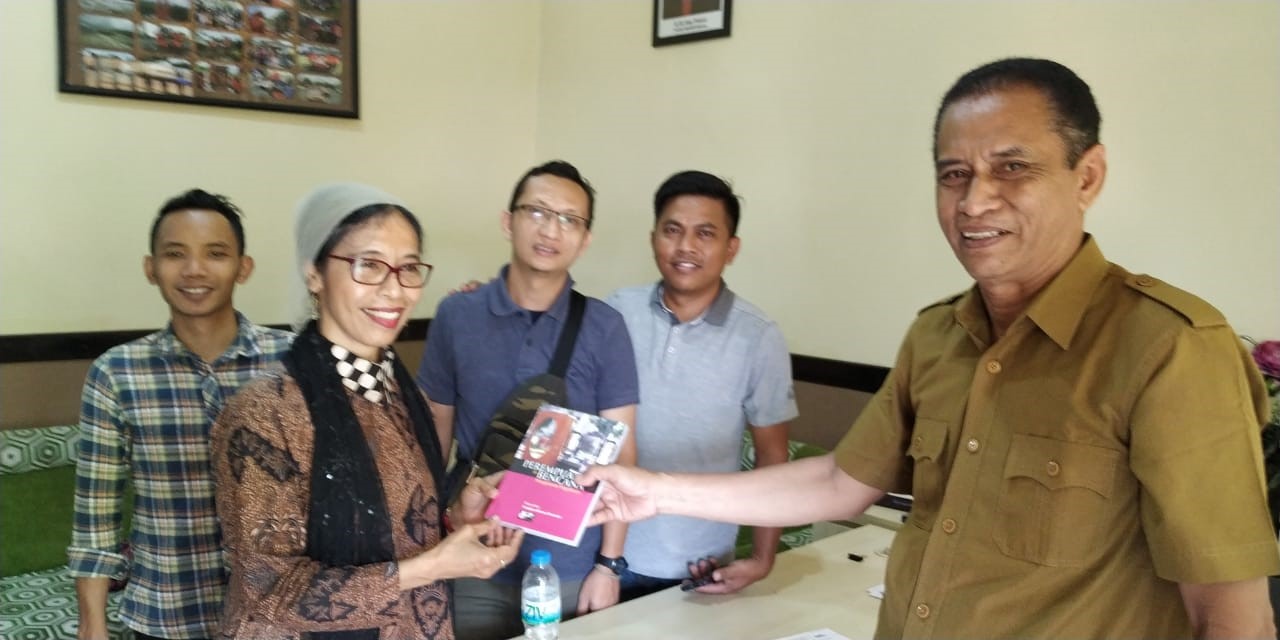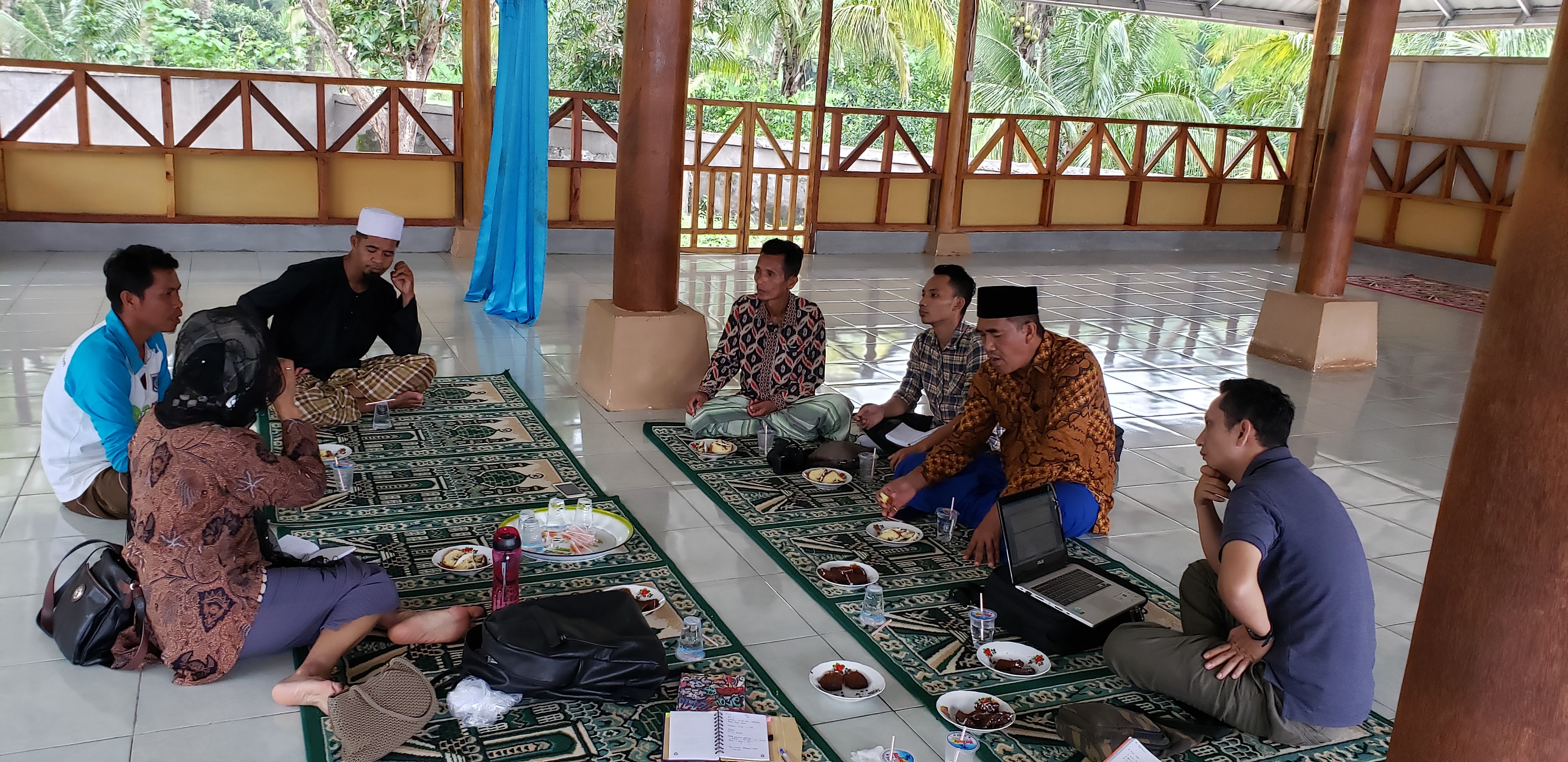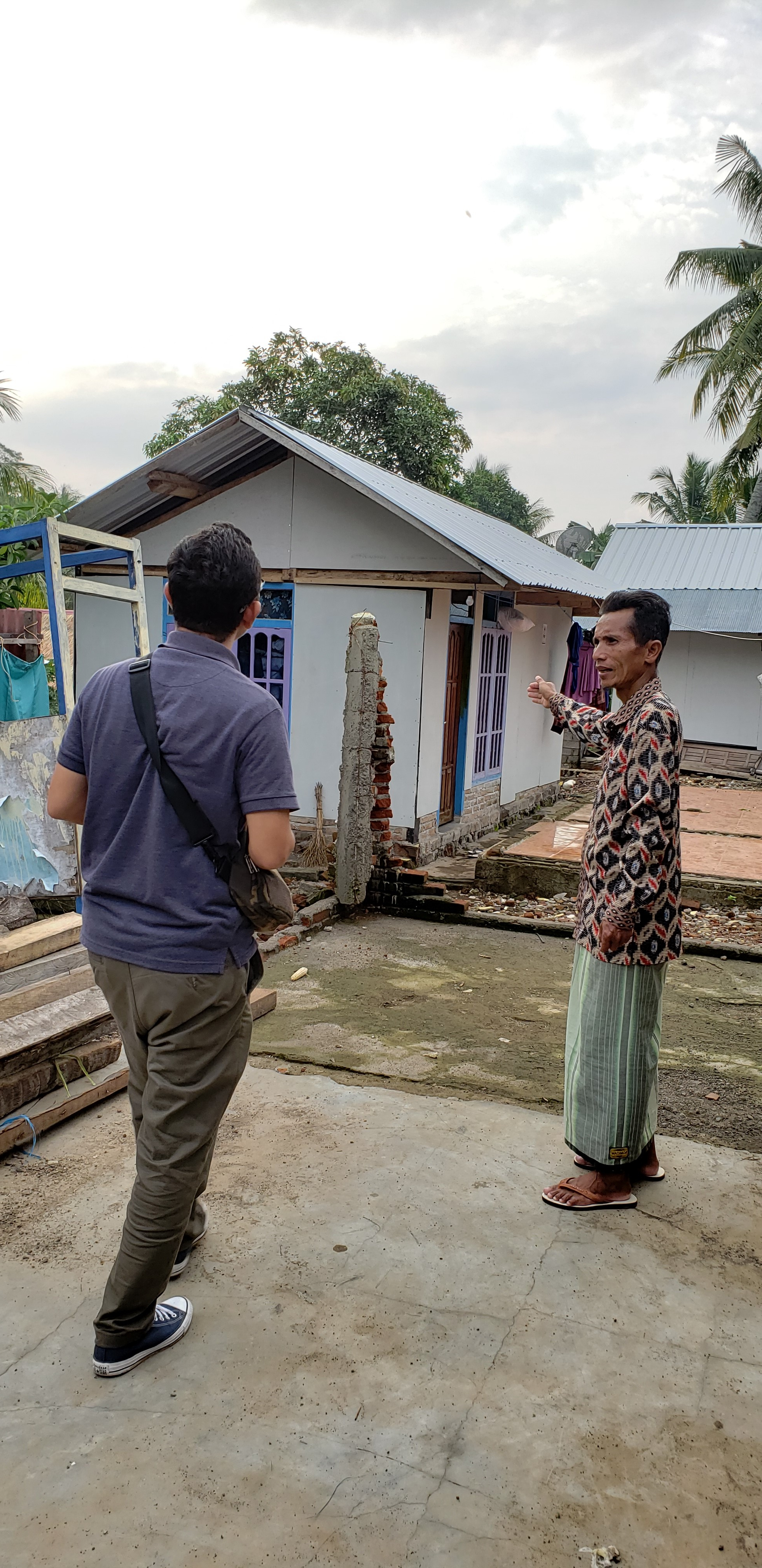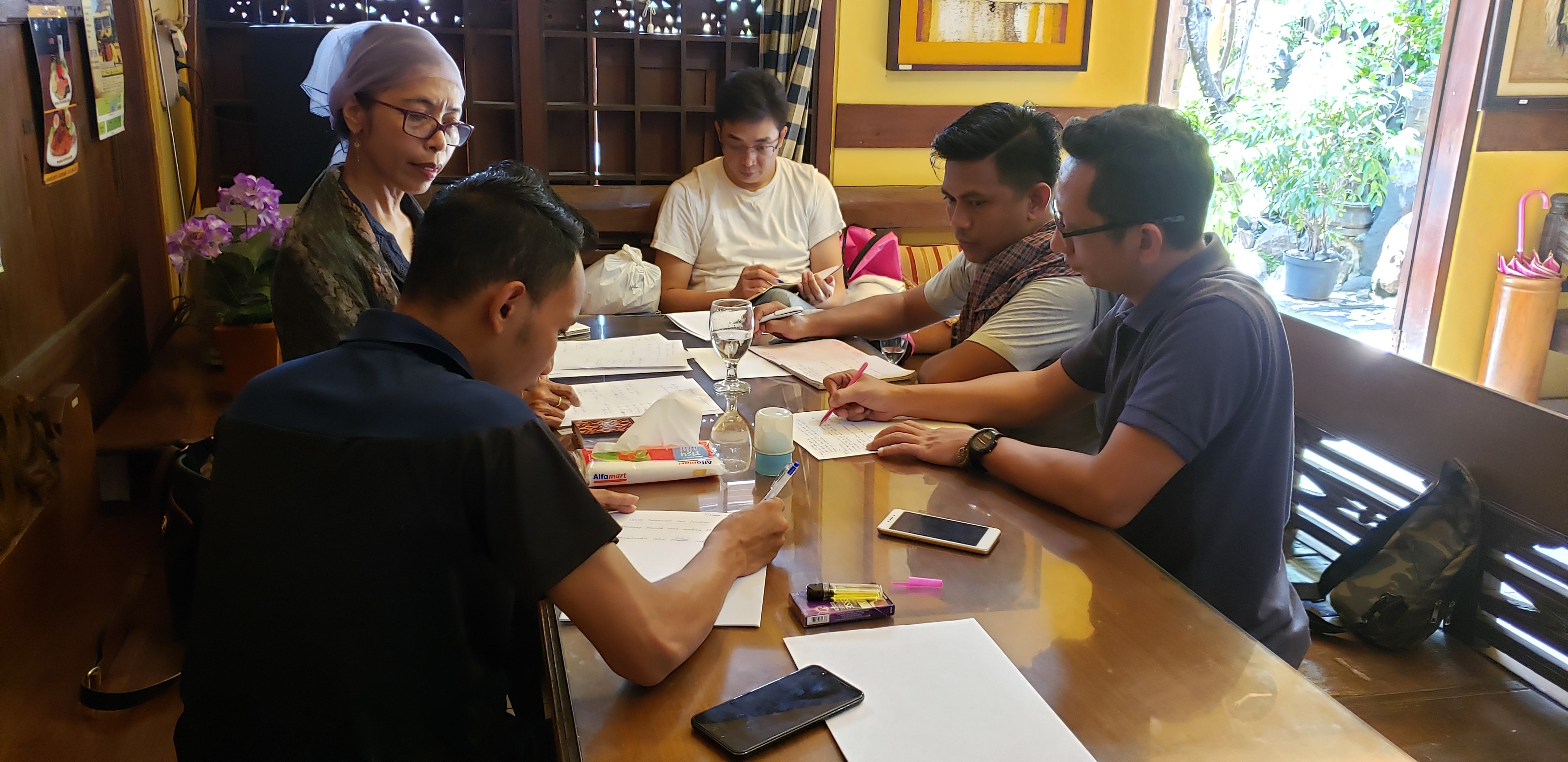A Letter from Farsijana Adeney-Risakotta, serving in Indonesia
April 2019
Write to Bernie Adeney-Risakotta (or baryogya@gmail.com) to Farsijana Adeney-Risakotta
Individuals: Give to E200303 for Bernie and Farsijana Adeney-Risakotta’s sending and support
Congregations: Give to D506007 for Bernie and Farsijana Adeney-Risakotta’s sending and support
Churches are asked to send donations through your congregation’s normal receiving site (this is usually your presbytery)
Subscribe to our co-worker letters
Dear family, friends and colleagues,
I began writing this letter in Lombok but am finishing it up in Yogyakarta. Lombok is in Nusa Tenggara Barat, where in 2018 there were five earthquakes in which 564 people died, 1,564 people were injured and 455,343 people became refugees when their homes were damaged by the earthquakes. Five aftershocks in 2018 and two in 2019 increased the number of houses with minor damage.
My students and I were in Lombok conducting public policy research on how to accelerate the formation of working groups comprised of earthquake victims whose houses had been damaged. They needed to rebuild their houses before April 12, 2019, the last day for using money sent by the Indonesian government. If the funds were not used by that date, they would need to be returned to the State Treasury.
The idea to conduct this research came from Roly, a student in my class on Strategic Management in the Social Entrepreneurship portion of the Master of Management program (MM) at Duta Wacana Christian University (DWCU). Roly, a native of Lombok, is Muslim. For their final project in the course, Roly and three friends are focusing on how fundraising can speed up the recovery process for earthquake victims. These students drove two days from Yogyakarta and stayed from March 15 to March 22. Later I joined them to conduct four days of intensive interviews.
Before we went to Lombok, I helped them write a grant proposal. In addition, they requested a grant of $2,443 (USD) from the Center for Studies of Development and Social Transformation (CSDST) of the Business Faculty at DWCU to pay for our trip to Lombok. My colleagues and I at the Business Faculty created the CSDST to help lecturers and MM students research development issues relating to social entrepreneurship, the management of grassroots organizations like the House of Authentic Sense (HAS) Co-op, and the impact of the global economy on people.
Upon arrival in Lombok, my students conducted a number of interviews with governmental agencies to understand the process of building permanent houses for victims; how meal allowances have met their needs; and the disaster relief process in general. Then I accompanied them on a visit to the Office of Emergency and Logistics of the Regional Disaster Management Agency (OELRDMA) to understand how disaster management has benefitted victims.
We also visited Gumantar — one of three villages for which I have requested a grant — which had a high death toll in the earthquake of 2018. Forty-eight people died, and no permanent houses have been built to replace the damaged houses. In 2019, two more earthquakes hit the village, and the people continue to live in fear. I spoke with a civil facilitator from a remote highland village of East Lombok to discuss creating working groups among victims.Before I returned to Yogyakarta, we agreed to share our recommendation with OELRDMA. Our recommendation emphasizes two important points: First, technical procedures need to be simplified. As of now, relief money is only available when the victims are organized within a working group of at least 20 people. Second, psychosocial-care is needed to empower many of the local heads of villages, who play a vital role in empowering working groups and advocating for disaster relief. Most village heads are earthquake victims and are still experiencing trauma themselves.
After I returned to Yogyakarta, my students sent me a photograph of their meeting with the officer of OELRDMA. In the photograph, Roly is shaking hands with the officer of OELRDMA. Also appearing in the photograph are three of my other students. Barmen, the pastor of an Indonesian Christian church in Banjarnegara in Central Java, studies social entrepreneurship to help church members’ communities strengthen their businesses. Ipy decided to study social entrepreneurship to address the human trafficking problem in his home province of East Nusa Tenggara. Finally, Troy is a lecturer at the Indonesian Art Institute in Yogyakarta who studies social entrepreneurship because he wants to start an NGO that addresses cultural conservation, such as the preservation of classic dances.
I invited the HAS Co-op Board to class to share their best practices with my students. The co-op helps empower its members to market their products and provides loans for those who need to expand their businesses. It works closely with governmental agencies and the university’s professors to provide education on various topics relating to the management of organizations, leadership, marketing, packing of products and many more.
Anyone — individuals or group representatives — can become a co-op member. Most individual members choose to represent groups, and the education and material they receive benefit the entire group. When people enroll in the co-op, they pay a one-time fee of 100.000 rupiah ($8 USD), and every month they can request a loan to develop their business.
CSDST and the Foundation of House of Authentic Sense (HAS) received a grant from Presbyterian Women to empower members of the HAS Co-op in the Samigaluh district to prepare for the impact of the development of the New Yogyakarta International Airport (NYIA). From the NYIA, a highway will be built through Samigaluh that will allow visitors to reach Borobudur, a world heritage site and Buddhist temple.
Ipy asked a challenging question: “How can we know that membership in HAS’s co-op has changed members’ lives for the better? The manager of the co-op, Anna Istanti, explained that one need only consider the response of its members. Anna shared the story of goat farmers who are thankful to be members of the HAS Co-op. With the help of a lecturer of Bio-Technology at DWCU, they were able to refine the ice-cream and milk production process to produce better food/drink and reduce negative by-products.
Before my students left for Lombok, they too became members of the HAS Co-op. Education provided by the HAS Co-op helped students understand the situation in Lombok. Roly identified coffee as an undeveloped community economic resource in Lombok. He would like to help systematize and refine the process of taking raw coffee, dyeing and roasting the beans, and then marketing Lombok coffee nationwide. He hopes to initiate a start-up program through the co-op. As Tanjung, West Lombok, the source of the coffee, was destroyed by an earthquake, selling the coffee will benefit its citizens.
Solving poverty everywhere, whether in Indonesia or in the U.S., requires the involvement of all people. All who have been given the spirit of life are called to work together in partnership. I am inspired by Zephaniah 2:3: “Seek the LORD, all you humble people of the land, who do what he commands. Seek righteousness! Seek humility! Maybe you will be protected in the Day of the LORD’s anger.” God sends people with the same vision to struggle deeply with implementing God’s plan.
As you know, Bernie has retired. He has been travelling around Latin America and hopes to travel back to Yogyakarta for two weeks before continuing his journey to Europe, where we will have a family reunion in England during Easter break. Bernie’s extensive travel around the world makes me trust God, the giver of life. God owns this earth, and we are connecting with it and with others with God’s permission. With God’s permission, I am continuing my ministry here. I am the only mission co-worker serving in Indonesia now. PC(USA) churches, groups and individuals have supported my ministry financially and through their precious letters and prayers. Your encouragement has walked with me as I engage in God’s ministry, which is your ministry too. My short letter is my thanksgiving greeting in the midst of this Easter season. May the celebration of Christ’s suffering as he walked to the resurrection inspire our commitment to do God’s work in this world.
Salam (peace),
Farsijana Adeney-Risakotta
![]() You may freely reuse and distribute this article in its entirety for non-commercial purposes in any medium. Please include author attribution, photography credits, and a link to the original article. This work is licensed under a Creative Commons Attribution-NonCommercial-NoDeratives 4.0 International License.
You may freely reuse and distribute this article in its entirety for non-commercial purposes in any medium. Please include author attribution, photography credits, and a link to the original article. This work is licensed under a Creative Commons Attribution-NonCommercial-NoDeratives 4.0 International License.
